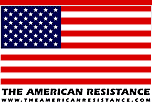U.S. Immigration Policy on the Table at the WTO
Articles
By Sarah Anderson, Internaltional Relations Center, November 30, 2005
http://www.fpif.org/fpiftxt/2962
In the contentious negotiations leading up to the December 13-18 World Trade Organization (WTO) summit, the big drama has centered around agricultural trade and whether the richer countries will grant expanded market access to commodities from the Global South. However, there has also been a battle brewing between developing countries and the U.S. government over immigration. Led by India , several countries are demanding expansion of U.S. visa programs for temporary professional workers.
How did immigration wind up on the table at the WTO? Under the global trade body's General Agreement on Trade in Services (GATS), governments can regulate the supply of services performed by foreigners. The technical term for this type of service trade is Mode 4. Thus far, the types of visas being discussed are those for executives and highly skilled professionals, such as Indian software engineers who have come to work in the Silicon Valley and other high-tech hubs in the United States . Some developing countries are pushing for the Mode 4 talks to cover less-skilled workers as well.
The wrangling over visas is just one more example of the WTO's mission creep. Global trade rules are no longer aimed merely at eliminating tariffs on goods that cross borders. The ultimate goal of GATS, for example, is to lift barriers to all manner of services by curbing national and local government controls on the entry of global banks, insurance companies, and other service providers into each country's markets.... And any domestic law, including public interest regulations, can be challenged under WTO rules as “an unfair barrier to trade.”
With the Hong Kong WTO summit only weeks away, negotiators appear to be deadlocked on many issues....
No matter what happens in Hong Kong , the issue is bound to re-emerge in future talks....
Powerful U.S. corporate lobbyists have sided with developing country governments in favor of expanded Mode 4 access. On the other hand, many progressives here and abroad, including WTO critics and migrant rights groups, have come down on the same side as anti-immigrant [correction: immigration reductionist] groups and some congressional Republicans.
Opposition to Expanded Mode 4 Access
U.S. Congress
The biggest obstacle to U.S. concessions on Mode 4 is not the Bush administration but Congress, where many lawmakers in both parties feel that trade negotiators have no business meddling in immigration policy. The Constitution gives Congress the power to “establish a uniform rule of naturalization.” The Supreme Court has interpreted this language to mean that Congress has the exclusive power to formulate policies pertaining to immigration. Although trade agreements must be approved by Congress, members have argued that their power is limited by “fast-track” trade authority, which requires an up or down vote without opportunity for amendments....
In June 2005, some House members tried a new tactic to block U.S. trade officials from negotiating immigration matters. A bill introduced by Colorado Republican Thomas Tancredo would have prevented the trade representative from using any funds (including for staff time) to negotiate improved access for foreign business personnel....
Advocates of Reduced Immigration
The Federation for American Immigration Reform (FAIR) cites two primary reasons for concern about Mode 4. The group feels that Washington 's current offer of codifying existing provisions for H-1B and L-1 visas strips its power to restrict these programs in the future. For example, if there were a recession with mass layoffs of American workers, the U.S. government could not respond by lowering the number of such visas granted. Secondly, FAIR says that these types of visas “provide a major impetus to the outsourcing process, because the visa programs bring foreign workers to the United States , where they are trained in the operations of the company in order to facilitate outsourcing contracts with that company when they return abroad.” There is anecdotal evidence that this is occurring but no data on the extent of the trend. The Center for Immigration Studies raises the additional concern that by including visa matters in the WTO, U.S. trade officials open the door for other countries to challenge U.S. immigration laws as barriers to trade in services subject to the WTO dispute resolution mechanism....
Promoters of Expanded Mode 4 Access
Coalition of Service Industries
The lead advocate for expanded Mode 4 access in the United States is the Coalition of Service Industries (CSI), which represents 43 corporations and business associations, primarily in the telecommunications and financial sectors....
Microsoft Chairman Bill Gates is not in favor of raising caps on H-1B visas; he is for eliminating the caps entirely....
Whatever the outcome of the Hong Kong WTO summit, the debate over GATS Mode 4 has created an opportunity to raise awareness of the expanding reach of the global trade body into policy areas that have profound impacts on virtually every aspect of life. Do we really want something as sensitive as migration decided in backroom deals, perhaps in return for lower tariffs on alfalfa? If asked, most people would likely say “no.”...
Read the complete article.
In order to use copyrighted material from this site for purposes of your own that go beyond 'fair use', you must obtain permission from the copyright owner.

